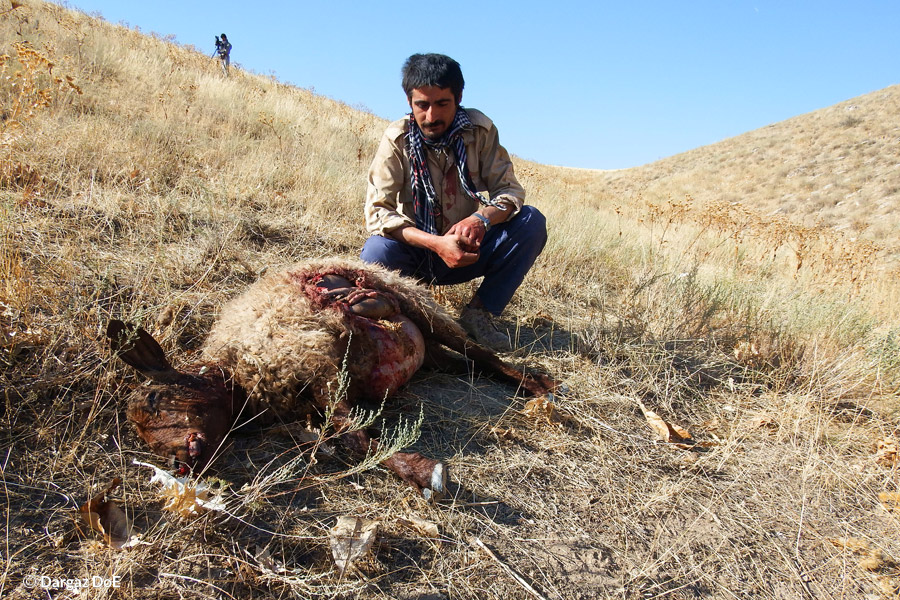Rural life is usually highly dependent on livestock and farming, both of which can be difficult to maintain at high altitudes, where predators may also be present. Every day, dozens of herders head their flocks of sheep and goats out to look for suitable grazing. The small flocks owned by each family come together to form a larger herd which is protected by a shepherd and several accompanying herd dogs.
Throughout their lives herders face various challenges, from occasional attacks by predators, such as leopards and wolves, to regular bouts of the infectious diseases to which the flocks are liable. Severe drought and lack of suitable food resources for domestic animals can also cause considerable suffering in their tough lives. Research and investigation reveal that herders lose more animals to disease than to predators. Such diseases can be contagious to wild ungulate populations, which use marginal areas of pasture along with the local herding communities.
We therefore work closely with local herders in selected villages to control infectious diseases, particularly peste des petits ruminants (PPR), foot-and-mouth disease (FMD) and Brucellosis Besides improving rural communities’ livelihoods by reducing livestock losses, this preventive work provides significant support for wild prey species, particularly urial sheep and Persian ibex, by avoiding outbreaks of disease.


